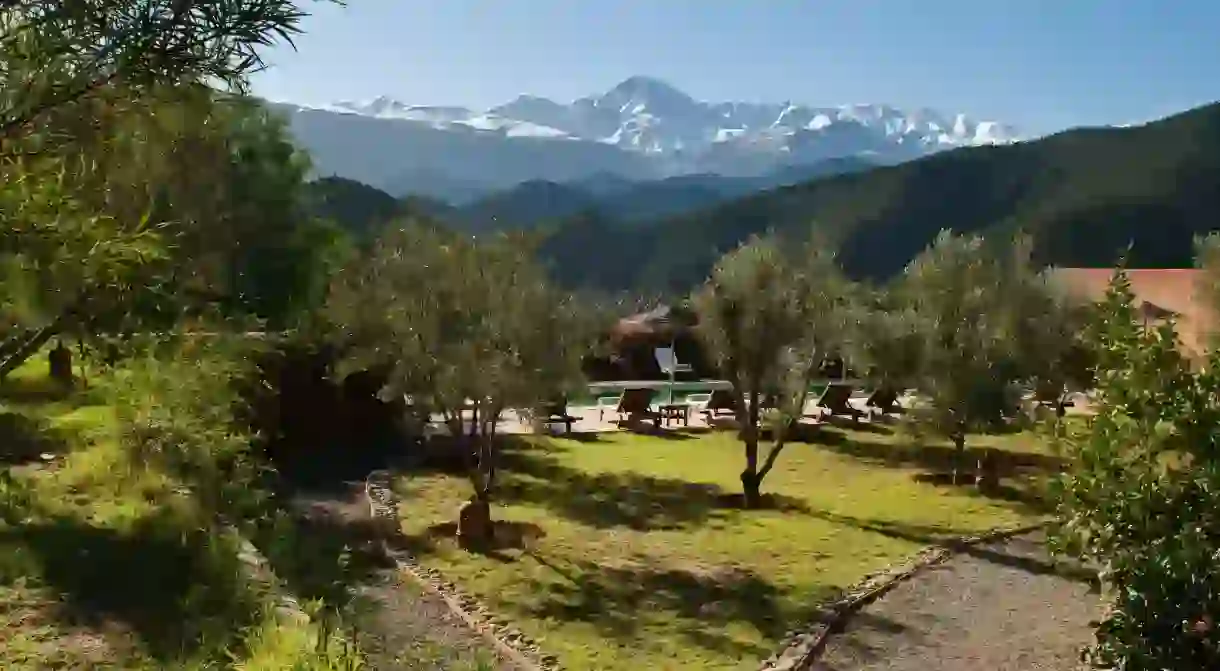Top Reasons You Should Visit Morocco’s Atlas Mountains at Least Once in Your Lifetime

The appeal of the Atlas Mountains lies in its many contradictions. Here, arid desert landscapes and snow-capped peaks frame fertile valleys dotted with remote Berber villages. Here’s why you need to add this Morocco highlight to your bucket list.
Just a couple of hours’ drive from Marrakech is the Atlas Mountains. No matter what time of year you visit, this place gets under your skin. In spring, fruit trees laden with blossom add a fragile beauty to the landscape. Sultry summers are made more bearable at higher altitudes, offering respite from the heat of the cities below. Autumn brings the promise of perfect hiking weather under cloudless skies. And the reward, if you come in winter, is the chance to ski somewhere wonderful. Read on to discover why you should visit the Atlas Mountains, which spans 2,500km (1,553mi) across northern Africa, on your next trip to Morocco.
You can also book Culture Trip’s six-day group adventure where you’ll get to hike the Atlas Mountains and stop off at a traditional Berber village.
Climb North Africa’s highest mountain
Natural Feature, Hiking Trail

At 4,167m (13,671ft), Mount Toubkal towers over the region’s other peaks. The best time to trek the Atlas Mountains is in the spring or autumn, allowing two days to complete this challenging ascent. Mule trails lead to a mountain refuge, providing a much-needed break where you can start to acclimatise to the altitude. From here, you can make your summit attempt. Needless to say, the views from the top are spectacular.
Learn about Berber culture and hospitality
Natural Feature

Berbers have long settled in this part of Morocco, with a history dating back more than 4,000 years. They were once traders, so it’s no surprise that welcoming travellers is an important part of their heritage. Head to Imlil, a remote Berber village close to Mount Toubkala, to enjoy mint tea in a Berber home and learn more about their way of life.
Sleep inside a kasbah
Hotel

Morocco’s kasbahs were originally citadels, built as a place of refuge in times of attack. Today, some of these hilltop fortifications have been adapted into luxury retreats, such as the Kasbah Bab Ourika overlooking the Ourika Valley. Its setting is idyllic, perched above verdant slopes carpeted with citrus trees. Birdsong and fresh mountain air will clear the mind, while the extensive treatment menu at the authentic hammam helps to revitalise tired bodies.
Eat the finest Moroccan food
Architectural Landmark, Historical Landmark

One of the reasons so many tourists make day trips from Marrakech to the Atlas Mountains is because of the food. Breakfast is a feast of home-made bread dripping with olive oil. Later in the day, savour tasty Berber tagines served with fluffy couscous and locally grown, seasonal vegetables. Wash down your meal with copious glasses of refreshing mint tea.
Explore the beautiful Azzaden Valley
Natural Feature

Many of the valleys that nestle between the mountains here are pretty, but none more so than Azzaden, particularly in spring, when its fruit trees are covered with blossom. A stroll through this tranquil landscape reveals walnut groves nestled in sheltered hollows and gnarly junipers with a foothold in the most inhospitable rock crevices. Throw in some Berber villages and a spot of sunshine and you’ve got one of the most photogenic spots in the Atlas.
Swim under the Ouzoud Falls
Natural Feature

Multiple cascades comprise the jaw-dropping Ouzoud Falls, which tumble into the El-Abid river gorge. To reach the waterfalls you must follow a shady path through olive groves. Once there, you can take a refreshing dip in the pool beneath the falls, in the company of the macaques that call this spot home. In such scenic surroundings, it’s not hard to see why this is one of the most popular excursions in the region.
Spot a Barbary macaque in the Ifrane National Park
Park

Go skiing at Oukaïmeden
Natural Feature, Ski Resort














